IR reform bill new battleground in union and business war
‘Impressed’ CFMEU construction boss John Setka backs in Labor’s ABCC abolition as a new front opens up in the workplace reform battle.
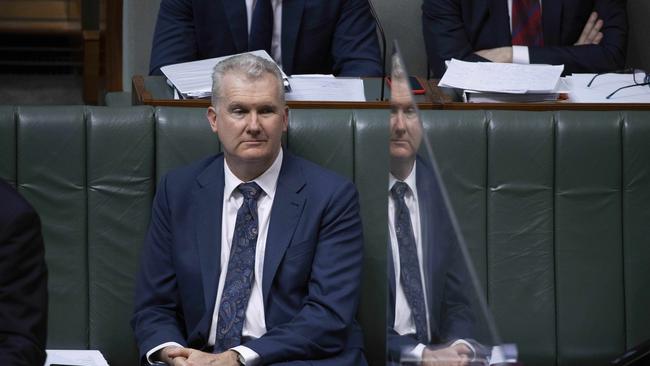
Federal Labor’s significant industrial relations changes represent important gains for workers and unions after years of stagnating pay packets and a ground war waged against organised labour by successive Coalition governments.
Due to the usual headline-grabbing catastrophising by the business lobby, the Albanese government’s plans to give unions the right to strike under expanded multi-employer bargaining streams has overshadowed other elements of the Secure Jobs, Better Pay bill that include addressing concerns long held by employers.
For instance, the government is improving the operation of the Fair Work Act’s better-off-overall test, the legal test used to approve pay deals, as part of a broader strategy to kickstart the failing enterprise bargaining system.
While there have been many dire warnings from employers about the bill reviving the prospect of 1970s-style industry-wide strikes, Labor also is proposing what unions assert represents a handbrake on industrial action – compulsory conciliation between employers and unions before legal strikes can occur.
That’s not to say the changes, collectively, don’t represent a major win for unions and workers. After all, this is a Labor government back in power after Coalition governments and conservative employment lawyers spent much of the past nine years seeking to weaken the influence of unions.
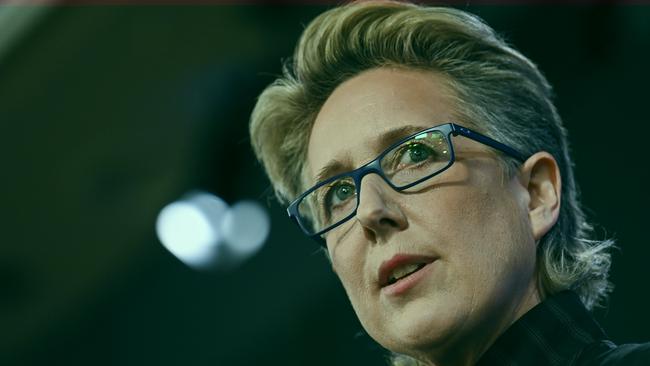
The bill provides for arbitration of “intractable” disputes, a move long desired by unions and which, for example, would likely have achieved an earlier settlement of Sydney Trains-style disputes.
If passed, employers will virtually lose the “nuclear option” of being able to unilaterally apply to terminate enterprise agreements as a bargaining tactic. The bill has important measures to advance gender equity, bans pay secrecy clauses, limits fixed-term contracts and grants access to arbitration of flexible work requests.
Labor will seek to abolish the Australian Building and Construction Commission and the Registered Organisations Commission, described by Employment and Workplace Relations Minister Tony Burke as “ineffective and discredited institutions, more concerned about prosecuting workers and their representatives than tackling rampant wage theft or addressing workplace safety, or educating and promoting good workplace relations”.
Burke has a point. Former Coalition ministers too often gave the impression the ABCC and the ROC were there to meet the Liberals’ political objectives by tying unions up in expensive and seemingly endless litigation.
That said, Labor’s abolition of the ABCC will save the country’s most militant union, the CFMEU’s construction division, millions of dollars in civil penalties and legal expenses in coming years.
Writing recently to members, the union’s Victorian secretary John Setka, no ally of Anthony Albanese, said he was “impressed” by Burke’s move to scrap the ABCC and the building code.
“Without going the early crow, I’m hoping that this government is going to be different (from the Rudd-Gillard governments) and from what I’ve seen so far I’m quietly confident,” Setka wrote.
“Our next EBA negotiations are now not going to be restricted to shit clauses and we will have the power to go after the non-union sites that exploit workers, have no safety, and are a direct threat to our wages and conditions.

“These sites are at the forefront of a race to the bottom and will affect your future wages and conditions if they’re not tackled. We’re not going to let that happen.”
Setka’s comments, while laced with his characteristic bravado, might cause some discomfort for Labor strategists thinking they will have to rely on Senate crossbencher David Pocock to give the government the numbers to get the bill passed. Pocock has expressed disquiet about the ramifications of scrapping the ABCC and the government will not appreciate the Setka comments potentially fuelling his concerns.
Under the bill, Labor has effectively banned the CFMEU’s construction division from being able to access multi-employer bargaining, not that it needed it given its capacity to extract 5 per cent annual pay rises from employers.
Pocock failed on Thursday by one vote to secure the numbers to get a Senate inquiry report into the bill delayed until next February and the inquiry will report by November 17.
Addressing the Senate, he said the bill was “clearly really important legislation for Australians, particularly workers in areas such as nursing, frontline workers who have not seen wage increases and who are feeling the pinch when it comes to inflation and the cost of living, with electricity prices forecast to go up more”.
While “very supportive of a number of the measures in this enormous piece of legislation”, Pocock said he had not seen the actual bill and it did not make sense for the crossbench to be given a couple of weeks to get across the details.
“Elements of this bill would have huge consequences for our industrial relations laws in Australia,” he said. “I asked the parliamentary library to look at the length of reporting dates for industrial relations reform in Australia, all the way back to Work Choices in 2005, and this sort of reporting date is unprecedented in terms of industrial relations. So I have real concerns about having such a short reporting date.”

During the same debate, Jacqui Lambie, who remains publicly critical of Labor’s cuts to crossbench staff, said the amount of time proposed to put the bill under the microscope was shameful.
“I need to go and use the small number of staff I now have left to try to dissect that bill, and if you think I can do that in a few weeks, I don’t know what planet you are living on. Oh, that’s right – you’re living on the planet of the unions,” she said. “I can tell you: it is not going to happen. It is not going to happen over this bill or any other important bill you put up in the future and you want to ram down our throats. You will not get that vote. You will not get it.”
As it stood on Friday, the government was facing an uphill battle to get the bill passed this year, even with Burke making it plain that changes would be accommodated. By far the most contentious element of the bill is the proposed expansion and rewriting of multi-employer bargaining streams, especially the new rights for unions and employees to take legal industrial action across companies.
Business Council of Australia chief executive Jennifer Westacott is among the employer representatives seeking to water down the provisions through substantial amendments. Unlike some other employer lobbyists, Westacott’s views on industrial relations are not automatically dismissed as partisan hackery by Labor figures and union leaders. After all, she worked closely for a time with ACTU secretary Sally McManus, and their collaboration has been spoken of positively by the Prime Minister and Burke.
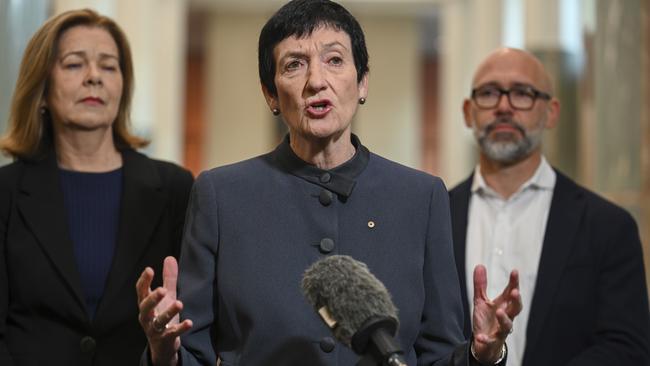
Hours after Burke detailed the bill, Westacott unloaded on the multi-employer bargaining changes, asserting they made industry-wide strikes possible, did nothing to address the country’s wages problem and risked sending the economy “over the edge”.
For its part, the government, quite rightly, is trying to fix deficiencies in the failed low-paid bargaining stream – think childcare and aged care – and get wages moving.
To allay employer concerns about unions and workers having new strike rights when pursuing multi-employer claims, the government is promoting the expanded conciliation and arbitration powers and a longer notice period of five days before industrial action can be taken. But employers express concerns about the “single interest” bargaining stream, claiming they will be roped into bargaining and exposed to strike action
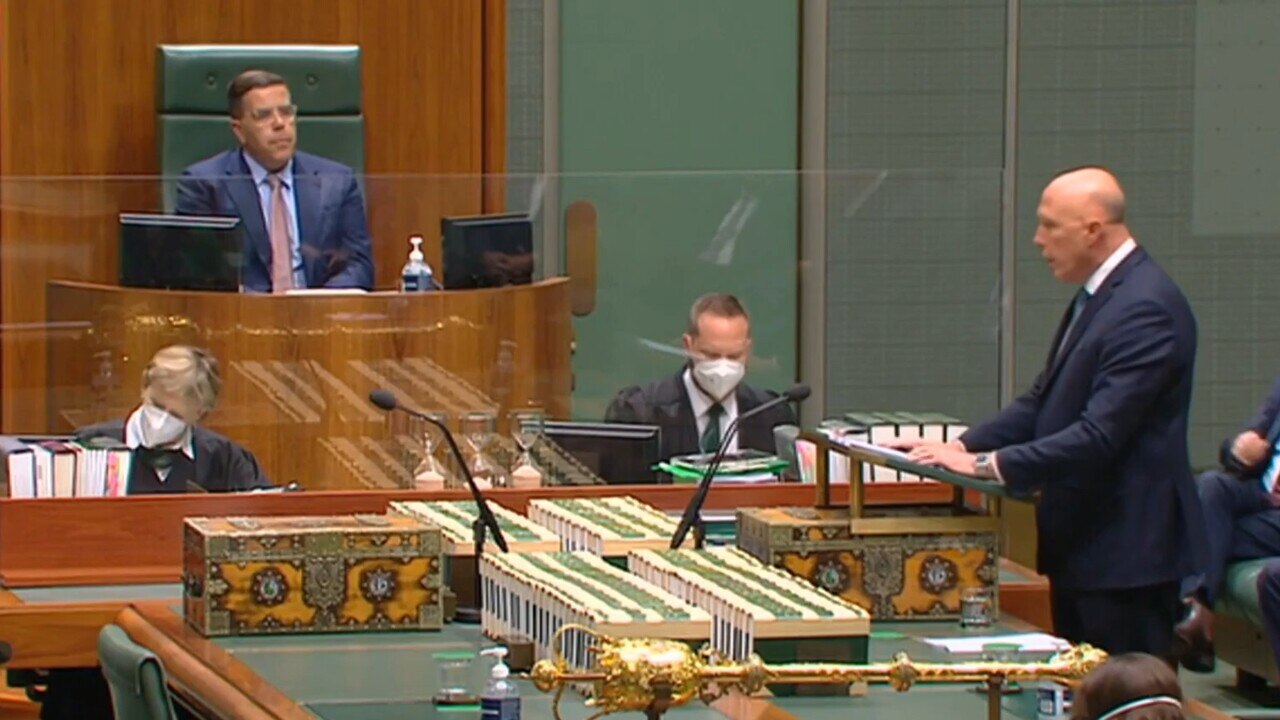
Based on his initial reading of the bill, University of Adelaide law professor Andrew Stewart, an expert on the Fair Work Act, said elements of the new multi-employer bargaining provisions were “very complex” and contained areas of uncertainty. However, he said he believed they would not result in industry-wide strikes, and protected action largely would be confined to union members.
“There is a significant expansion here of the right to take industrial action but it’s an expansion that will affect a small number of workers,” he said
“I think it’s going to take quite a time to see any significant impact on wage levels and, to be honest, it’s government decisions about funding pay rises in sectors where the government is the paymaster that are far, far more significant than what employers and employees in those industries choose to do by way of making use of those new provisions.
“The drivers of significant wage increases will be the annual wage review and government funding decisions, whether it’s for multi-employer bargaining or for changes to award rates that are pursued either through work value cases or under the new equal remuneration provisions.”
McManus said while the bill was an important step forward in many areas, “we are concerned that too many workers will be shut out of the proposed new bargaining options either automatically or because the bar to access it is too high”.
“Additionally, the bill does not simplify or remove the red tape that makes the process of obtaining protected industrial action for workers unnecessarily long and difficult; in fact, it adds more red tape,” she said. “It is predictable that the same employers who have been able to keep wages low for a decade are opposing change. If they agreed to pay rises that recognised workers’ contribution to their profits and productivity, we wouldn’t have a wage crisis.”
Burke will likely to have to make substantial amendments – a position he is open to – if he wants the first tranche of Labor’s workplace policy changes legislated before Christmas.
With this week’s federal budget forecasting real wage cuts for a further two years, and that prediction was before the latest higher inflation number, he has little time to lose if Labor is to succeed in its pledge to get wages moving.


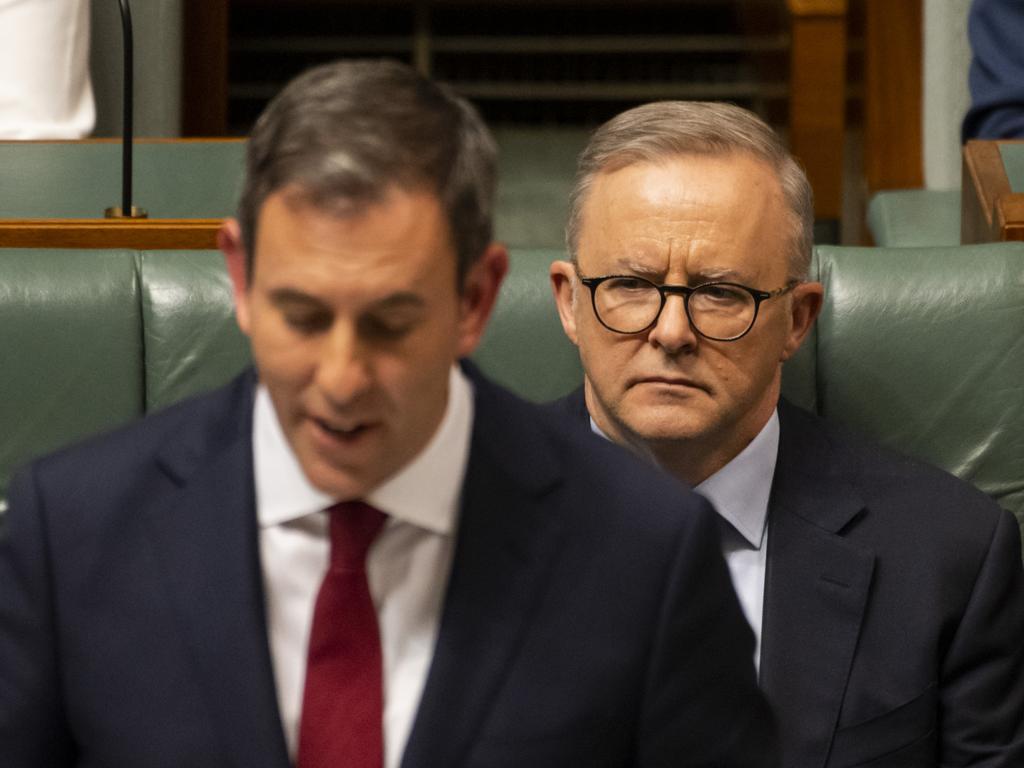

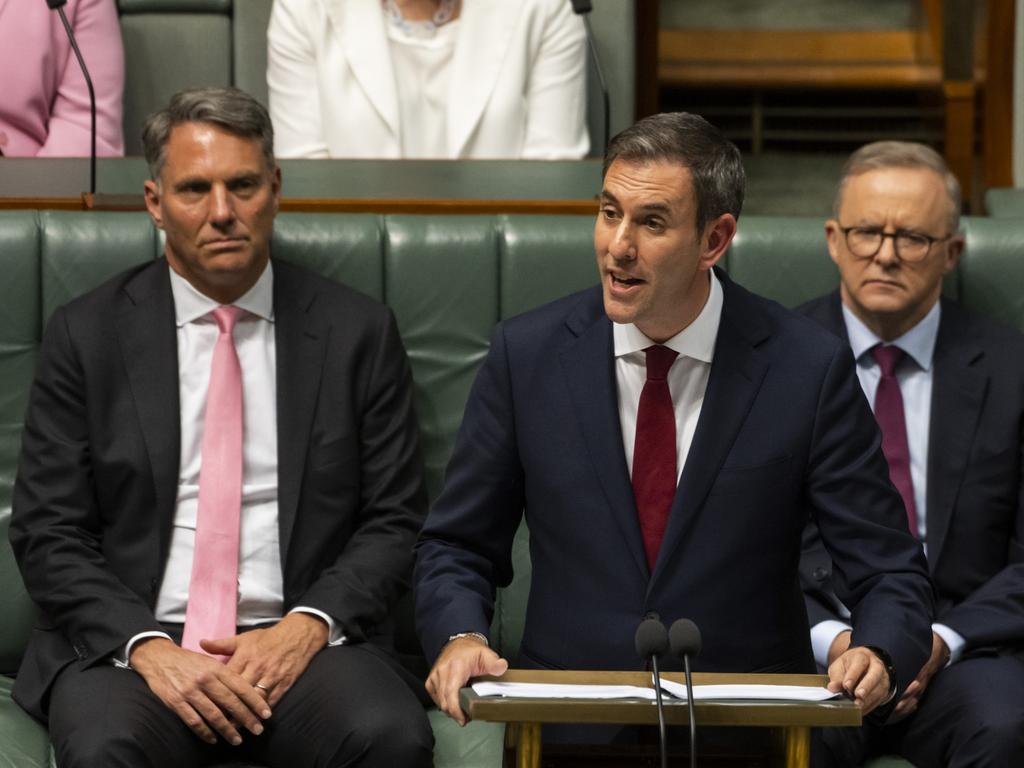


To join the conversation, please log in. Don't have an account? Register
Join the conversation, you are commenting as Logout